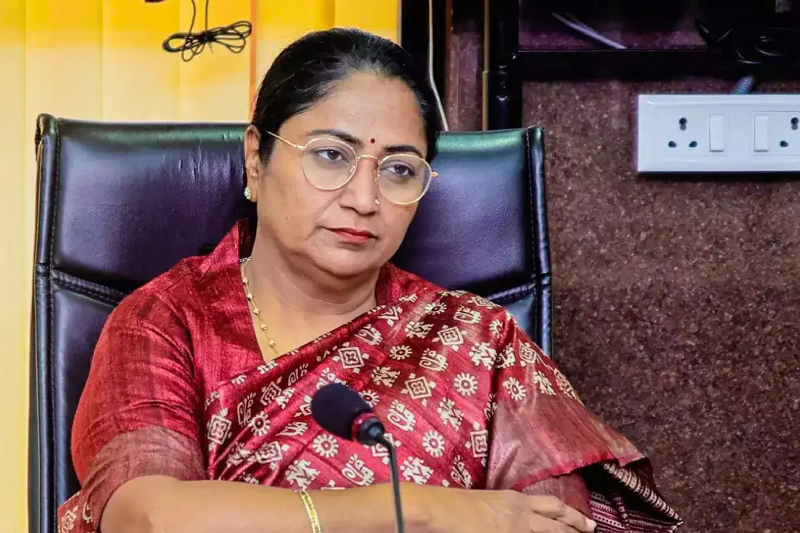
Delhi’s New School Fee Law Puts Parents in Charge — But It’s More Complicated Than It Looks
In a significant development for education governance in the capital, the Delhi government has passed the Delhi School Education (Transparency in Fixation and Regulation of Fees) Bill, 2025. Aimed at curbing arbitrary fee hikes in private schools and increasing transparency, the bill is being touted as a win for parental rights. But beneath the surface, there’s a lot more to unpack.
What the Law Actually Does
Introduced by Delhi Education Minister Ashish Sood, the bill was passed during the Monsoon Session of the Delhi Assembly. It extends regulatory oversight to all 1,700 private schools in the city — a major expansion from the 300 schools previously covered under the Delhi School Education Act of 1973.
Under the new law, fee proposals must pass through multiple levels of scrutiny before approval:
- School-level committees must approve fee proposals by July 15
- District-level committees review these by July 30
- Final decisions are expected by September
If these committees fail to reach a consensus within 45 days, an appellate committee will step in to make the final call.
Schools that increase fees without government approval face steep fines ranging from ₹1 lakh to ₹10 lakh. In cases where excess fees aren’t refunded, penalties can double.
Additionally, the Director of Education has been granted powers comparable to a Sub-Divisional Magistrate, enabling them to take suo motu action and enforce compliance uniformly across institutions.
Parental Participation: A Big Shift — with Conditions
Perhaps the most talked-about aspect of the bill is the formal inclusion of parents in the fee-setting process.
Committees tasked with overseeing fee proposals will include parents, teachers, school management, and government representatives. This structure gives parents a much-needed voice — even a veto power — over proposed fee increases.
According to Ashish Sood, the bill ensures that schools can no longer sideline parental concerns. “Parents can now raise issues not only about fees but also infrastructure, poor services, or lack of facilities like labs or playgrounds,” he told The Times of India.
However, there’s a catch. To prevent what Sood describes as “institutional paralysis,” individual parents are barred from filing complaints unless they garner the support of at least 15% of other parents. This clause, he claims, is meant to stop a single parent from stalling necessary administrative processes.
Why Parents Are Still Protesting
Despite the bill’s seemingly pro-parent stance, many parent advocacy groups remain deeply dissatisfied.
The United Parents' Voice (UPV) staged a protest at Jantar Mantar, submitting a memorandum demanding:
- A rollback of previously unapproved fee hikes
- Independent audits of school finances by the Comptroller and Auditor General (CAG) and forensic experts
- More transparent fee data published on government portals
- Monthly fee collection options to reduce financial pressure on families
- Government-supervised elections for Parent-Teacher Associations (PTAs)
Their key concern: the bill was passed without adequate public consultation, and the 15% complaint requirement effectively restricts individual rights to challenge wrongdoing.
Moreover, the UPV and others argue that formal parental representation, while a positive step, could easily become symbolic unless mechanisms are put in place to ensure genuine participation and accountability.
Legal Challenges and Civil Court Access
A major sticking point for critics is the limited scope for civil litigation. Under the new law, civil courts will no longer be the first point of recourse for parents in fee-related disputes.
Instead, the bill introduces a three-tier grievance redressal system:
- School-level committee
- District-level committee
- Appellate committee
Education Minister Sood defended this design, pointing out that Delhi has over 600 civil courts, yet hardly any fee-related cases make it there. He emphasized that the bill now provides a more streamlined path for resolving disputes.
Still, opponents believe that removing access to civil courts limits parental rights, particularly in cases where internal mechanisms fail or are biased.
Resetting the Fee Structure: What Happens Next
The bill resets all existing fee structures from April 1, 2025. Under this provision:
- Current fees will be treated as proposed fees
- They must be reviewed by school and district committees
- If a hike is deemed excessive, it will be rolled back
- If justified, it may be approved and formalized
Schools failing to comply with the process or bypassing approval will be subject to the new penalty structure.
This rollback mechanism is intended to give the government a clean slate — and a chance to regulate what many parents have long viewed as unjustified and opaque fee increases.
A Step Forward — But Not Without Caveats
The Delhi School Education (Transparency in Fixation and Regulation of Fees) Bill, 2025 marks a milestone in school governance reform, especially for a city where private education dominates. By giving parents a seat at the table, the government signals a shift toward more democratic oversight of school finances.
However, real transparency and empowerment require more than committees and fines. Without inclusive consultation, independent audits, and safeguards for individual complaints, there’s a risk this bill may fall short of its ambitious goals.
The government believes it has struck a balance between institutional autonomy and parental accountability. But as protests continue and implementation begins, it remains to be seen whether this balance truly serves students, parents, and schools — or leaves the core problems of private education unresolved.



